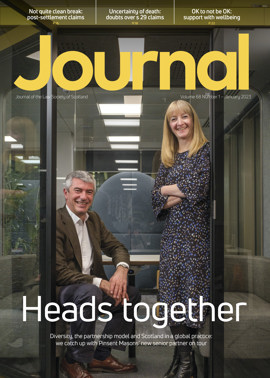Immigration: First stop Rwanda?
The high profile case of AAA v Secretary of State for the Home Department [2022] EWHC 3230 (Admin) was decided on 19 December 2022. This has been a long awaited decision that has gripped the immigration law world since the Rwanda plan was announced.
Various human rights agencies and organisations, including the UNHCR, have commented on their aversion to the plan. Nevertheless, the High Court ruled that the Rwanda plan is legal and that the UK Government can therefore send asylum seekers to Rwanda to claim asylum, if their asylum claims are determined to be inadmissible (i.e. that they should not be considered on their merits) by the Home Office.
What is the Rwanda plan?
The Rwanda plan, also known as the Migration and Economic Development Partnership, was announced by the Government in April 2022. The part of this deal that has been so controversial is the UK and Rwanda’s asylum partnership relationship. This will allow the UK Government to send some of those who come to the UK to claim asylum, to Rwanda to have their claims considered there instead. This agreement also includes the Government providing Rwanda with £120 million, although this is to increase once the country increases the number of asylum seekers that it accepts. It rings somewhat similar to the Israel-Rwanda scheme which was eventually abandoned.
Those who will be considered under the Rwanda plan are those who arrived in the UK having passed through another safe third country. There has been a key focus in the media on those crossing the English Channel from France, as France is an example of a safe third country, and small boat crossings have increased by 60% between 2021 and 2022 alone. If a claim is found to be inadmissible, the Government will then determine whether the claimant should be sent to Rwanda to have their claim considered. However, to date no one has been removed to Rwanda due to the intervention of the European Court of Human Rights.
Why is the plan so controversial?
Concerns around the Rwanda plan have stemmed from fears around whether the basic rights of those sent there would be assured. Further, asylum seekers sent to Rwanda would have their claims considered by Rwanda and not the UK. Once decided, the UK would not permit those granted asylum in Rwanda to return. Further, it appears as though the Government has not learned from the Israeli plan, which started in 2014 and was curtailed in 2018. Some commentators have gone as far to state that the plan is a breach of international law.
The High Court decision
The High Court has decided that the Rwanda plan is lawful and that the UK Government can send people to Rwanda to have their asylum claims considered. It did not find that Rwanda is a safe country; this was not for the court to consider. Instead, it said that the Home Secretary’s decision was lawful as she had considered all relevant information available.
However, the court held that the decisions made by the Home Office in regard to each individual claim were not given proper consideration. One key error made by the Home Office was that each claimant was confused with another, therefore the facts were not true for each person. Each case must therefore be reconsidered on its own merits.
What happens next?
It is likely that appeals will be brought to the Court of Appeal, and the plans to remove asylum seekers to Rwanda will be put on hold yet again. The current Home Secretary, Suella Braverman, has said that the Government
will stand against any further legal challenge.
It is unlikely that it will back down, as the current Government seems determined to move forward with its plan. The eight individual claimants will have their decisions reconsidered; whether the outcome will be different, however, remains to be seen.
Regulars
Perspectives
Features
Briefings
- Civil court: Costs – the tail that wags the dog
- Licensing: Keeping alcohol out of sight
- Planning: A framework for sustainability?
- Insolvency: When is a creditor not a creditor?
- Tax: A new, improved autumn statement?
- Immigration: First stop Rwanda?
- Scottish Solicitors' Discipline Tribunal: January 2023
- Civil court: Expenses – barred by delay?
- Property: Transparency, human rights and the registers






